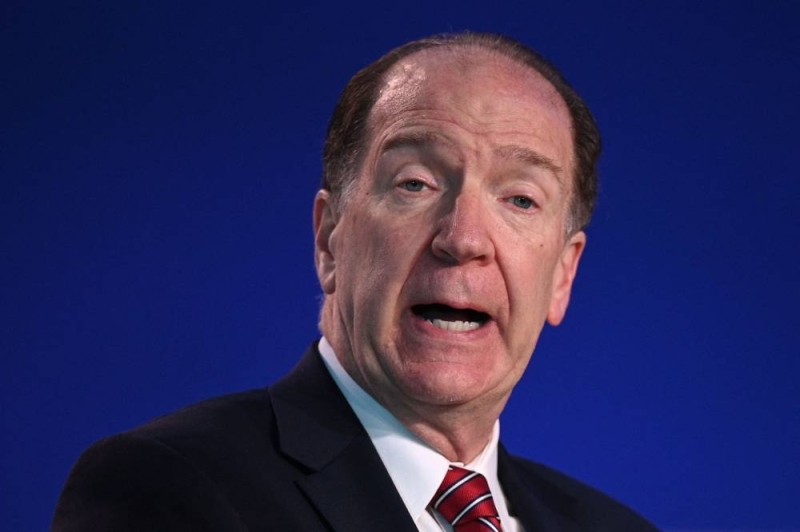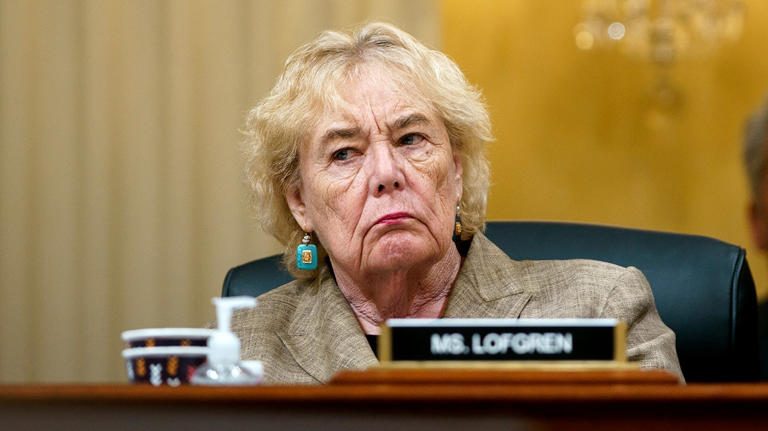PM Hun Sen's United Nations appearance draws Cambodian diaspora protest
2022.09.23

Protestors hold signs at a demonstration by members of the Cambodian diaspora at United Nations headquarters as Prime Minister Hun Sen was set to give a speech at the U.N. General Assembly in New York, Sept. 23, 2022.
About 300 members of the Cambodian diaspora in the U.S. rallied at United Nations headquarters in New York on Friday, demanding that the Phnom Penh government release political prisoners and implement democratic reforms as Prime Minister Hun Sen was set to address the U.N. General Assembly.
The protesters displayed photos of detained activists from the now-dissolved Cambodian National Rescue Party (CNRP), whose leader Sam Rainsy has been in exile in France, and urged Hun Sen, the country’s long-ruling strongman, to release his grip on power.
“Please respect human rights, release political activists to their freedom, and have free and fair elections in which all parties can participate,” Sam Vathana of Long Beach, California, told RFA when asked what his message was for Hun Sen.
Chun Sothy, a CNRP activist who recently received asylum in the United States, traveled from North Carolina to attend the New York protest, told RFA that he was persecuted in Cambodia and fled to Thailand for three years before coming to the U.S.
“I want Hun Sen to return our positions that he robbed from us. I am a former commune councilor. He robbed 5,007 seats,” Chun Sothy said. “He robbed the wills of more than 3 million people. If Hun Sen loves peace, why did he rob the wills of the people?”
Chun Sothy was referring to Cambodia’s recent communal elections, which opposition activists and civil society groups said was marred by pressure campaigns from Hun Sen’s allies.
“I want to tell the world that Hun Sen is not a leader who was elected. He stole power and we are living under a dictatorial and corrupt regime,” Chun Sothy said.
The prime minister, who has ruled Cambodia for more than three decades, did not schedule any meetings with Cambodians now living in the U.S. while on his trip to the U.S., saying he was too busy. But some of his supporters greeted him at his hotel in New York.

It called on Cambodia “to reverse all wrongful convictions and detentions,” including the recent conviction of Cambodian American human rights attorney Seng Theary for conspiracy to commit treason, part of a mass trial largely viewed as part of a broader crackdown on critics of Hun Sen.
Since coming to power in 1985, Hun Sen has consistently targeted opponents to his rule and placed CPP officials in positions of authority nationwide. Parties that challenge his rule are often subjected to investigations, arrests and other forms of harassment by CPP officials and their supporters.
Translated by Samean Yun. Written in English by Nawar Nemeh.
Villagers take protest over long-running land dispute to Cambodian capital
2022.09.06
Villagers protest in front of Cambodia's Ministry of Justice, seeking the government's intervention in resolving a long-running land dispute, in Phnom Penh, Sept. 6, 2022. Photo courtesy of a citizen journalist
More than 1,000 people from two Cambodian provinces staged a protest on Tuesday outside the Ministry of Justice in Phnom Penh, calling on the government to resolve a long-running dispute over land taken by politically connected businesspeople, sources in the country said.
The residents of several hundred villages in Koh Kong and Kampong Speu provinces west of Phnom Penh contend that they did not receive adequate compensation for farmland seized to build an airport and have been forced into poverty as a result.
Land disputes are common in Cambodia and other Southeast Asian countries. Government officials routinely seize land for lucrative real estate ventures, leaving displaced locals with little or no recourse.
The villagers said they took their decade-long grievances to the capital city after provincial authorities turned down their request for help.
They raised banners imploring Prime Minister Hun Sen and his wife, Bun Rany, to intervene and deliver justice, saying the ongoing dispute has caused them financial hardship. They also petitioned the Ministry of Justice and Hun Sen’s Cabinet, requesting that charges against more than 30 representatives of the villagers be dropped.
Authorities arrested the representatives in September 2021 during a violent roundup of protesters in Kandal province, which surrounds the capital region. They were demonstrating against land the government took from them and gave to a businessman with ties to the autocratic leader to build an airport.
Det Huor, a representative of the Koh Kong villagers, told RFA that the 1,000 people who protested on Tuesday also intended to march to the Ministry of Interior and Ministry of Land Management, Urban Planning and Construction, but were stopped by security officers.
She said villagers involved in the land dispute can no longer afford to send their children to school. She and other villagers have been imprisoned for defending their rights, she said.
“Villagers’ representatives are the most vulnerable,” she said. “When we demanded [a solution], companies filed complaints to the court. I myself was sentenced to two years in jail and ordered to pay a fine.”
The protesters’ banners displayed portraits of Hun Sen and requested he identify villagers as citizens with incomes below the poverty line, so they can receive free medical services and other benefits. They also asked that officials stop pursuing legal action against them and against village representatives in court.
Pheap Teng, another representative from Koh Kong, said authorities and wealthy Cambodians used the courts to prosecute the villagers in the land dispute between her community and the provincial airport company owned by Ly Yong Phat, a casino tycoon and senator from the ruling Cambodian People’s Party.
Pheap Teng said she worries she will become even more impoverished if the dispute drags on.
“Please speed up a solution for my community,” she said. “Only Samdech [an honorific for Hun Sen] can give us a solution with Okhna [honorific] Ly Yong Phat.”
RFA couldn’t reach government spokesman Phay Siphan for comment on Tuesday.
Soeung Sengkaruna, spokesman for Cambodian rights group Adhoc, said after local authorities neglected the villagers’ entreaties, the residents had to spend a lot of money seeking intervention from the central government to no avail. Because of this, he urged Hun Sen to provide a solution.
“People think that only the prime minister can resolve the conflict,” he told RFA. “This is why they urged him to deliver a solution.”
Translated by Samean Yun for RFA Khmer. Written in English by Roseanne Gerin.







